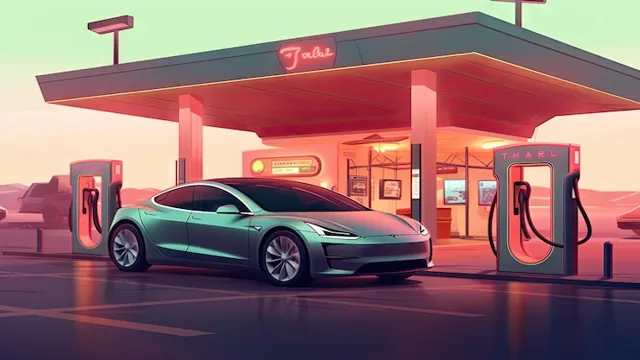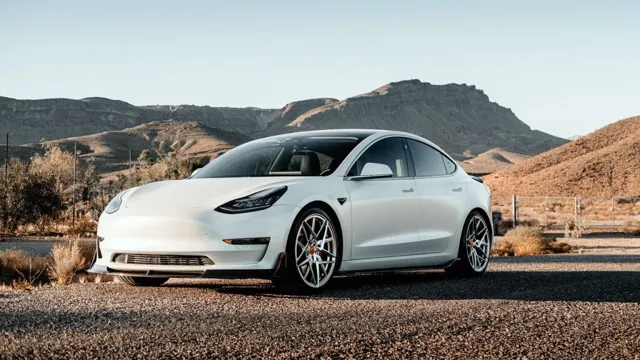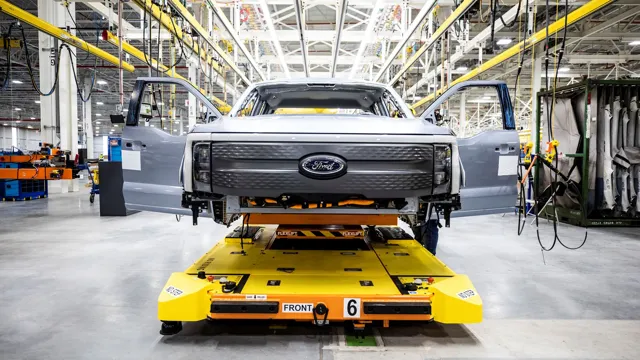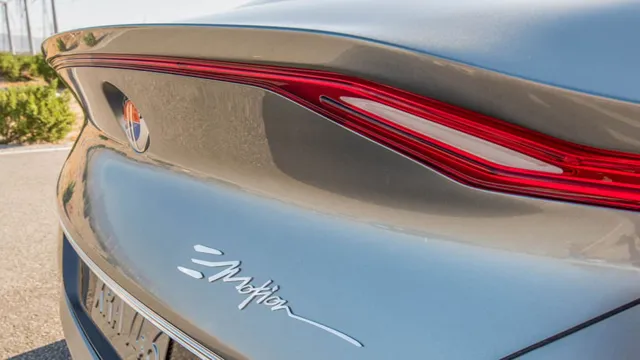Revving Up the Future: Exploring the Latest Electric Car Technology Advancements
Electric vehicles (EVs) are transforming the automotive industry in unprecedented ways. EVs use rechargeable batteries, electricity stored in charging stations or home charging units, and produce virtually no emissions. They are an ideal alternative to traditional gasoline-powered cars, which are known for their environmental impacts and limited stamina.
In recent years, advancements in electric car technologies have made EVs more accessible and convenient to use. With innovative features that improve battery performance, reduce charging times, and enhance EV safety, electric cars have become more popular than ever before. In this blog post, we will explore the latest tech advancements in the electric car industry and what they mean for the future of transportation.
Improved Battery Capacity
One of the most significant electric car technology advancements in recent years has been the improvement in battery capacity. Gone are the days of range anxiety and frequent recharging stops. Modern electric cars can travel much further on a single charge than their predecessors, thanks to advancements in battery technology.
The latest electric cars can travel up to 300 miles on a single charge, making them a viable option for everyday use and long road trips. The batteries themselves are becoming more compact and lightweight, ensuring they don’t take up too much space in the car. With these advancements, the potential for electric cars to replace gas-powered vehicles is becoming increasingly realistic.
So, if you’re considering an electric car, now is the time to join the green revolution and experience the wonders of electric car technology for yourself.
Tesla’s Battery Breakthroughs
Tesla has been making headlines with their battery breakthroughs, particularly with their improved battery capacity. This advancement is due to the new cell design that uses larger and more efficient silicon anodes, which increases energy density. The silicon anodes hold ten times more lithium than their graphite counterparts, leading to a longer battery life and greater range for electric vehicles.
Additionally, Tesla’s new batteries use a new electrolyte that stabilizes the charging process, allowing for faster recharging times and reducing the risk of overheating. With these improvements, Tesla is leading the way in making electric vehicles a viable option for the masses by eliminating range anxiety and improving the overall driving experience. It’s exciting to see these advancements, as they continue to push the boundaries of technology and work towards a more sustainable future.
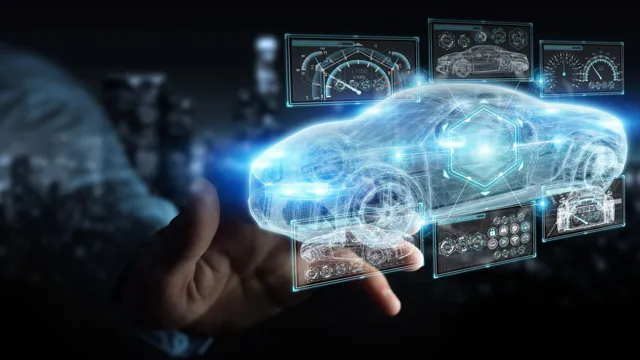
Solid-State Battery Technology
Solid-state battery technology has the potential to revolutionize the way we use batteries in our everyday lives. These batteries are becoming increasingly popular due to their improved battery capacity, providing longer life to our devices. Traditional batteries rely on liquid or gel electrolytes that can leak or dry out over time, leading to reduced capacity and eventual failure.
These new solid-state batteries, on the other hand, use solid materials as electrolytes, making them less prone to leakage and drying out. This breakthrough technology could lead to smaller, more efficient, and longer-lasting batteries, opening the door to a vast array of new devices and technology. Imagine a phone that lasts for weeks on a single charge or an electric car that can drive for hundreds of miles on a single charge.
It’s exciting to think about the possibilities that solid-state batteries bring to the table, and as research continues to advance this technology, we can expect to see even more improvements in the coming years.
Faster Charging Capabilities
Electric car technology advancements have made it possible to charge batteries faster than ever before. With the introduction of DC fast chargers, electric car owners can reach 80% battery capacity in as little as 30 minutes. This is a game-changer for drivers who are always on-the-go and don’t have time to wait hours to charge their car battery.
Additionally, some manufacturers are developing wireless charging solutions that eliminate the need for physical cords and cables. This means that in the future, drivers may simply park their car over a special charging pad and have their battery automatically charged as they go about their day. These types of advancements are just the beginning of how electric car technology will continue to evolve.
As charging capabilities become faster and more convenient, we expect to see even more widespread adoption of electric cars in the coming years.
Porsche’s New Charging System
Porsche, charging system, faster charging If you’re familiar with electric cars, you know that one of the biggest drawbacks has been the length of time it takes to charge them. But Porsche is looking to solve that problem with their new charging system. The system, which is set to debut on their upcoming Taycan model, promises impressive charging times, with the ability to go from 0 to 80% charge in just 15 minutes.
That means you could potentially add 250 miles of range in just the time it takes to grab a cup of coffee. The key to this faster charging is a new 800-volt charging architecture, which provides double the voltage of most current electric vehicles. This not only allows for faster charging times but also reduces the weight and size of the necessary charging equipment.
While it remains to be seen how this new system will perform in the real world, it’s certainly an exciting development for the electric car industry, and a sign that charging times may no longer be a major concern for electric car owners.
Wireless Charging Technology
Wireless charging technology has come a long way in recent years, and today’s devices are faster and more efficient than ever before. With the latest advancements, you can fully charge your phone in just a fraction of the time it used to take. These faster charging capabilities are largely due to improvements in the technology itself, including the use of more powerful charging coils and better heat dissipation.
Some wireless chargers even use advanced algorithms to optimize the charging process, ensuring that your phone is charged as quickly and safely as possible. With the convenience of wireless charging, and the added benefit of faster charging speeds, it’s no wonder that more and more people are relying on this technology to power up their devices.
Rapid Charging Infrastructure
Rapid Charging Infrastructure is revolutionizing the way we think about electric vehicle technology. With faster charging capabilities than ever before, electric cars are becoming a more viable option for long-distance travel. Rapid charging infrastructure allows for shorter charging times, meaning that drivers can spend less time waiting around and more time on the road.
This is a game-changer for drivers looking to reduce their carbon footprint and save money on gas. Whether you’re a commuter or a road-tripper, rapid charging infrastructure is an essential component of the electric vehicle ecosystem. By investing in this technology, we can take a big step towards a cleaner, greener future.
So, are you ready to join the movement and make the switch to electric? With rapid charging infrastructure, the possibilities are endless!
Increased Range and Performance
Electric car technology advancements have led to significant increases in range and performance over the years. With better battery technology and charging infrastructure, electric cars can now drive further than ever before. Range anxiety is no longer much of a concern for electric vehicle drivers, as some models can now drive up to 400 miles on a single charge.
Moreover, the performance of electric cars has also improved, with many models achieving rapid acceleration and top speeds that rival traditional gas-powered vehicles. With increased range and performance, electric cars are becoming more attractive to the average consumer. The keyword “electric car technology advancements” has played a critical role in making electric cars a viable option for mainstream drivers.
As electric vehicle technology continues to advance, we can expect even more improvements in the future, further solidifying the role of electric cars as a sustainable mode of transportation.
New Motor Configurations
Electric vehicles have been gaining popularity all over the world, and manufacturers are constantly looking for ways to improve the driving range and performance of their electric cars. One way they are achieving this is by developing new motor configurations that are more efficient and powerful. By using advanced technologies in motor design and engineering, these new configurations can increase the range of electric cars while also improving acceleration and overall performance.
For example, some manufacturers are using permanent magnet motors that have higher power density and require less copper wiring, making them lighter and more efficient. Other manufacturers are exploring the use of multiple motors to provide better traction and acceleration, as well as more precise control over the vehicle. As these motor technologies continue to evolve, we can expect to see even more improvements in electric vehicle range, performance, and affordability.
Aerodynamic Design Innovations
Aircraft manufacturers are constantly seeking innovative designs to increase the range and performance of their planes. One such innovation is the use of winglets, which are upward-sloping extensions on the tips of aircraft wings. Winglets are designed to reduce drag and improve fuel efficiency by minimizing the creation of vortices at the wingtips, which can decrease lift and increase drag.
Another aerodynamic design innovation used to improve range and performance is the use of laminar flow control, which involves coating the wings with a thin layer of material to reduce turbulence and increase fuel efficiency. Both winglets and laminar flow control have been shown to significantly increase the range and performance of aircraft, making them a valuable addition to aircraft design. By implementing these innovations, aircraft manufacturers can reduce fuel consumption, increase range, and improve the overall performance of their planes, which is beneficial for both the environment and the bottom line.
Intelligent Features and AI Integration
Electric car technology advancements have recently seen a surge in intelligent features and AI integration. These advancements have been made to assist drivers in various ways, from improving vehicle safety to providing better driving experiences. AI integration has enabled electric cars to learn from the surrounding environment, making accurate predictions about the car’s performance and the road.
This feature has also been used to enhance driver assistance systems, including lane departure warnings, collision avoidance, and pedestrian detection. The intelligent features have been designed to make electric cars more user-friendly, reducing the anxiety related to owning an electric vehicle. They allow drivers to plan their journeys and receive real-time traffic alerts, making it easy to locate charging stations, and provide accurate estimates on how far the car can travel.
As electric car technology continues to advance, we can expect more innovative features to be developed that will further enhance the driving experience and make electric vehicles more accessible to drivers worldwide.
Conclusion
Electric car technology has advanced by leaps and bounds, proving that the future of transportation is charged up and ready to go. From improved batteries and increased range, to sleeker designs and faster charging times, electric cars are finally shedding their eco-friendly image and becoming a mainstream option for commuters and enthusiasts alike. So next time you’re out on the road, remember: when it comes to electric cars, the only thing burning is jealousy.
“
FAQs
What are the latest advancements in electric car technology?
The latest advancements in electric car technology include improved battery range, faster charging, and advancements in autonomous driving technology.
Are electric cars more expensive than traditional gas-powered vehicles?
Electric cars can be more expensive upfront, but they typically have lower operating and maintenance costs than gas-powered vehicles over the long term.
Can electric cars be charged at home?
Yes, electric cars can be charged at home with the help of a home charging station, which can be installed in your garage or outdoor parking space.
What is the average battery range of an electric car?
The average battery range of an electric car is around 200-300 miles, but some models can travel up to 400-500 miles on a single charge.
